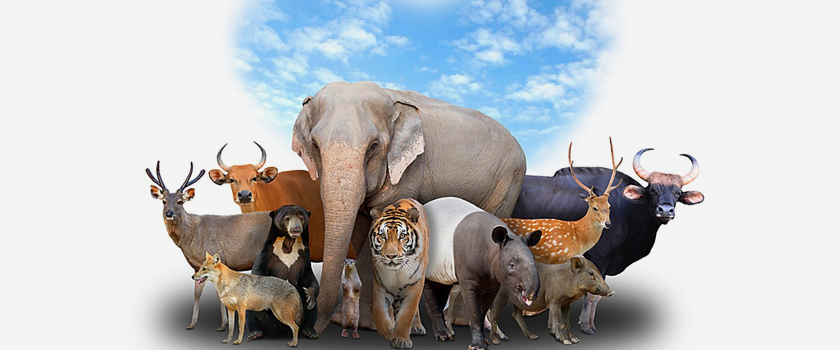In different language system, the connotation under animal related words may vary. Using them to refer various kinds of people is the wit of writers. As writers part the society, through those words by them, one aspect of the public culture is manifested before us.
Whether there already has any research on the topic or not, the understanding of such literal art would be an effective way to know indigenous people and language. While for translators, probing into that language phenomenon and comparing with our mother tongue would make translation no longer tedium or even boredom.
The first animal I will mention here is lamb. It carries the meanings – sweet, mild-mannered person; a dear or one can be cheated especially in financial matters – which Chinese equivalent word lacks. There are several idioms and common says, like as innocent as a lamb, as gentle as a lamb, as meek as a lamb, ewe lamb. All good ones.
As to the Chinese animal with such reference meaning, as far as I know maybe the rabbit has. We have a well-known children’s song told the story between little white rabbit and grey cunning wolf, aiming to teach baby not to be cheated by bad people as the rabbit.
Read Also: 1st Personal pronoun in Japanese and Chinese (2)
In English, the image of cat is widely used to describe people. In English culture, cat is usually connected with witches, bad women with vicious intentions, etc., mainly bad things. From the saying that a cat has nine lives, we can see that cat has strong vitality which is the same as in Chinese.
In superstition, encountering a black cat will be very unfortunate. On this point, we Chinese have the crow’s cry foreboding bad thing would happen. There are words as catty, cattish to describe bad people or bad characters. But this animal does not always representing the black side. For example, in an American idiom “fat cat” means a wealthy and privileged person.
Getting this point, mistakes can be avoid while translating phrase someone who is a literal fat cat or something like that. If showing some who feel ill at ease, we can say he “likes a cat on hot bricks”. It vividly manifests the awkward and squirmed situation before us. While in Chinese, ants in hot pot is in the same situation.
Are you looking for Chinese Translation? We are here for your assistance.
As to the two animals – tiger and lion – it can be very misleading on their image in Chinese and English. In English culture, one entry of the word “tiger” in dictionary is a person considered as aggressive, audacious, or fierce, nothing to do with brave or such positive connotation as in Chinese. However, lion can refer to someone very brave, eminent.
We can refer a celebrity as a great lion, a literary lion, describe a brave person as bold as a lion, or fight like a lion. A lion in the way or path is a hard-to-overcome obstacle. If someone beards the lion in his den, he is definitely the one who dares to challenge a powerful something. Probably you have watched the English movie LION KING. In Chinese culture, its place is for tiger, which is the king in the forest. For several mentioned idioms and proverbs, their roles can be exchanged under two cultures.
Take a look at how we helped our client by localizing their project for Chinese language. Click here to read the complete case study







